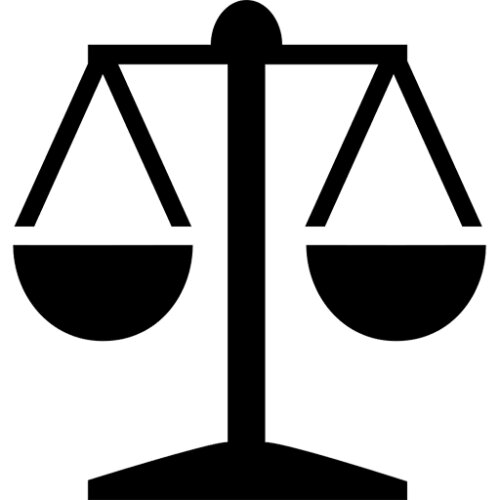Best Corporate Governance Lawyers in Nice
Share your needs with us, get contacted by law firms.
Free. Takes 2 min.
List of the best lawyers in Nice, France
About Corporate Governance Law in Nice, France
Corporate governance refers to the system of rules, practices, and processes by which a company is directed and controlled. In Nice, as in the rest of France, corporate governance is shaped by a combination of national laws, European Union regulations, and best practice guidelines. It covers areas such as the rights and responsibilities of shareholders, boards of directors, managers, and other stakeholders. As an economic hub on the French Riviera, Nice is home to many businesses, ranging from startups to established corporations, each requiring a tailored approach to corporate governance to ensure compliance and maximize performance.
Why You May Need a Lawyer
There are several common situations when seeking advice from a corporate governance lawyer becomes essential. These include forming or restructuring a business, navigating regulatory compliance, managing mergers and acquisitions, handling conflicts of interest, drafting or reviewing bylaws and shareholder agreements, and ensuring transparency in decision making. Legal expertise is also crucial during shareholder disputes, boardroom conflicts, or when implementing anti-corruption and data protection measures. A lawyer helps ensure your company operates within the legal framework, mitigating risks and promoting good business practices.
Local Laws Overview
Corporate governance in Nice adheres primarily to French national legislation, including the French Commercial Code (Code de commerce) and relevant European Union directives. Key legal requirements focus on the composition and duties of boards, the protection of minority shareholders, disclosure requirements, and provisions against conflicts of interest. Companies must maintain accurate records, conduct regular general meetings, and uphold transparency in financial reporting. Non compliance can result in administrative sanctions, financial penalties, or even the suspension of business activities. Local legal professionals in Nice are familiar with the nuances of these laws as they apply to the specific economic landscape of the region.
Frequently Asked Questions
What are the basic principles of corporate governance in Nice, France?
Corporate governance in Nice is based on transparency, accountability, fairness, and responsibility, in line with French law. These principles shape the relationships among management, shareholders, and other stakeholders.
Who is responsible for corporate governance in a company?
The board of directors and executive management are primarily responsible for implementing and maintaining corporate governance, but shareholders and regulatory authorities also play key roles.
Does French law require companies to have a board of directors?
Yes, most corporate forms in France, including in Nice, are required by law to have a board of directors or other governing body, depending on the type of company.
What are the main legal sources governing corporate governance?
The primary sources are the French Commercial Code, EU directives, the company’s articles of association, and in some cases, codes of best practice published by organizations such as the AFEP MEDEF.
Are there specific rules for listed companies?
Yes, listed companies on markets such as Euronext Paris are subject to stricter rules regarding transparency, disclosure, and the composition of boards, including independent directors and gender diversity requirements.
What are the rights of minority shareholders?
Minority shareholders have legal rights to ensure fair treatment, such as requesting information, calling for meetings, and proposing agenda items, as well as initiating court actions if their rights are violated.
How are conflicts of interest managed?
Directors and officers must disclose any personal interests in transactions involving the company, and certain transactions require board or shareholder approval to avoid conflicts of interest.
What are the penalties for poor corporate governance?
Penalties can range from financial fines and administrative sanctions to criminal liability and removal of directors, depending on the type and severity of the breach.
How often must companies hold shareholder meetings?
French law requires at least one annual general meeting of shareholders, but additional meetings can be called as needed or in certain situations outlined in the company’s bylaws.
Can foreign investors participate in French corporate governance?
Yes, foreign investors can be shareholders, board members, or officers. However, they must adhere to French law, and in some sectors, there may be additional regulatory requirements.
Additional Resources
For those seeking further information or assistance, several resources are available:
- Chambre de Commerce et d'Industrie Nice Côte d'Azur: Provides guidance and resources for local businesses on compliance and governance matters.
- Ordre des avocats de Nice: The local bar association can help individuals find qualified corporate lawyers.
- Agence France Entrepreneur: Offers support for company formation and governance compliance.
- Autorité des marchés financiers (AMF): Oversees listed companies’ compliance with financial regulations and good governance practices.
- National legislative resources such as Legifrance: For access to the latest French laws and regulations.
Next Steps
If you require legal advice related to corporate governance in Nice, consider the following steps. Clearly identify your specific concerns or legal needs, such as company formation, shareholder disputes, or compliance issues. Gather all relevant documents, including company statutes, meeting minutes, and contracts. Search for a qualified corporate governance lawyer in Nice, ideally one with experience in your sector. Schedule a consultation to discuss your situation and ask about their approach, fees, and experience. Staying informed and proactive ensures your business operates efficiently within the legal and regulatory framework, reducing risks and promoting sustainable growth.
Lawzana helps you find the best lawyers and law firms in Nice through a curated and pre-screened list of qualified legal professionals. Our platform offers rankings and detailed profiles of attorneys and law firms, allowing you to compare based on practice areas, including Corporate Governance, experience, and client feedback.
Each profile includes a description of the firm's areas of practice, client reviews, team members and partners, year of establishment, spoken languages, office locations, contact information, social media presence, and any published articles or resources. Most firms on our platform speak English and are experienced in both local and international legal matters.
Get a quote from top-rated law firms in Nice, France — quickly, securely, and without unnecessary hassle.
Disclaimer:
The information provided on this page is for general informational purposes only and does not constitute legal advice. While we strive to ensure the accuracy and relevance of the content, legal information may change over time, and interpretations of the law can vary. You should always consult with a qualified legal professional for advice specific to your situation.
We disclaim all liability for actions taken or not taken based on the content of this page. If you believe any information is incorrect or outdated, please contact us, and we will review and update it where appropriate.













